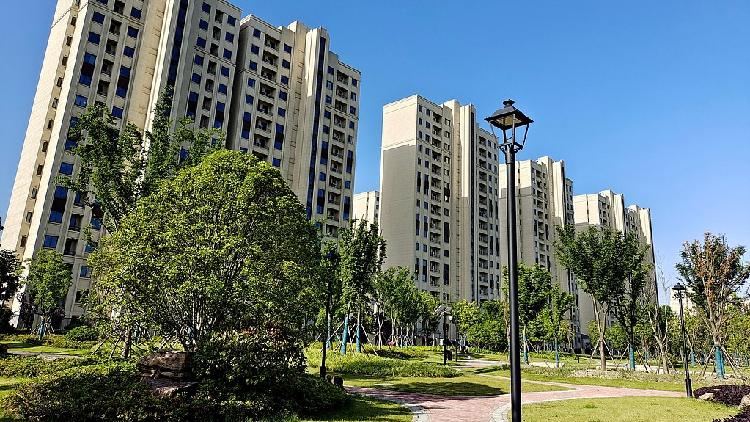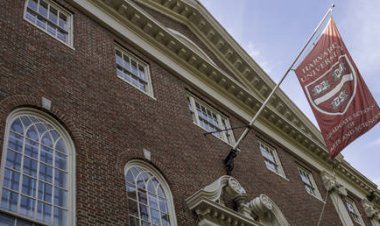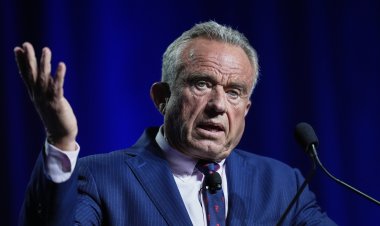China's central bank announces comprehensive actions to stimulate the economy
China's central bank has rolled out a series of notable monetary policy changes designed to boost economic growth and stabilize the property market.

People's Bank of China (PBOC) Governor Pan Gongsheng announced a comprehensive suite of measures on Tuesday, which includes cuts to interest rates and an increase in market liquidity.
Economists and homebuyers expressed their support for these initiatives, viewing them as constructive steps forward.
**Support for Housing Sector**
To address the persistent issues in China's real estate market, the PBOC revealed that the minimum down payment for second-home mortgages would decrease from 25 percent to 15 percent across the country.
There has been considerable online discussion regarding the PBOC's guidance for commercial banks to align interest rates on existing mortgages with those of newly issued loans, which is expected to result in an average reduction of 50 basis points.
This measure aims to alleviate the financial burden on millions of homeowners while also encouraging consumer spending. The central bank anticipates that this policy will benefit 50 million households, leading to an average annual reduction in total interest expenditure of about 150 billion yuan.
**'Every yuan counts'**
Wang Silan, a resident of Beijing who purchased his first apartment in December 2020, expressed relief following the recent announcement.
Wang, who has a 30-year mortgage at a 4.5 percent interest rate, has been making monthly payments of 5,700 yuan. He noted that the trending topic "100,000 yuan discount in interest payment for one million yuan 30-year mortgage" on Chinese social media platform Weibo caught his attention.
"Even though the 100,000 yuan savings will not be directly deposited into my bank account, and the monthly reduction might not be that noticeable, it is definitely a welcome change," he stated.
"If I had not bought an apartment in 2020, I would definitely buy one now. Renting an old apartment just did not feel right, and I felt like I was paying someone else's mortgage," he added.
The recent policy adjustments could have an even greater impact for Wang. According to the central bank, the average new home loan interest rate has dropped to 3.45 percent as of the end of the second quarter, which means Wang might enjoy a one percent decrease in his mortgage rate.
**LPRs on Downward Trend**
The PBOC has reduced the policy interest rate for the seven-day reverse repurchase operation by 0.2 percentage points to 1.5 percent, with the loan prime rates (LPRs), the standard for loan pricing in China, expected to decline accordingly.
A bank associate indicated that while her bank is confident LPRs will decrease, details on how new developments will impact homebuyers are still being worked out.
Luo Yan, another Beijing resident, shared her experience after purchasing an apartment slated for delivery at the end of 2025. She began repaying her mortgage once the roof of her new home was completed, in line with government guidelines, utilizing her housing provident fund loan, which typically features lower interest rates than commercial mortgages.
"Luckily, I caught the wave of the central bank's interest rate cut," commented Luo, noting that in May, the PBOC had cut the interest rate for personal housing provident fund loans by 0.25 percentage points, bringing it down to 2.85 percent for first-home buyers on loans over five years.
"Whether house prices go up or down, I am not too worried. New homes in good locations are always in demand," she added.
Governor Pan indicated that the PBOC would explore options for policy banks and commercial banks to extend loans to qualified enterprises for land acquisitions from real estate firms, aiming to revitalize existing land use.
Li Yunze, director of the National Administration of Financial Regulation, mentioned at the same press conference that, as of the end of August, real estate development loans had increased compared to the start of the year, reversing a previous decline.
**PBOC Boosts Liquidity and Capital Markets**
The PBOC also announced plans to lower the reserve requirement ratio (RRR), the proportion of cash that banks must keep in reserve.
The RRR will be decreased by 0.5 percentage points "in the near future," which is expected to inject around one trillion yuan of liquidity into the financial system.
Depending on market conditions, further reductions of between 0.25 and 0.5 percentage points may be considered later this year, Pan noted.
In addition, the PBOC intends to introduce new tools to support capital markets, including a swap facility allowing financial institutions to exchange low-liquidity assets for higher-quality, more liquid assets, with an initial allocation of 500 billion yuan for the program.
The central bank plans to launch a repurchase agreement program to support stock buybacks and increase shareholdings by listed companies and major shareholders, which is anticipated to boost market confidence and stabilize stock prices.
**Economists React Positively**
Economists have largely responded favorably to the latest policy measures from the PBOC.
Wen Bin, chief economist at China Minsheng Bank, mentioned that the PBOC's policy package has surpassed market expectations. "As these policies are gradually implemented and their effects continue to unfold, they are expected to effectively stimulate domestic demand, stabilize credit levels, and contribute to a steady economic recovery," he stated.
Bruce Pang, chief economist of JLL Greater China, noted that "these policy adjustments will better support the steady and healthy development of the real estate market, effectively reducing the behavior of residents prepaying their mortgages and ensuring the stability of bank operations."
On Tuesday, China's A-share markets saw a significant surge, with the benchmark Shanghai Composite Index rising by 4.15 percent at close.
*Editor's Note: Wang Silan and Luo Yan are pseudonyms to protect the privacy of the interviewees.*
Camille Lefevre for TROIB News
Find more stories on Business, Economy and Finance in TROIB business












